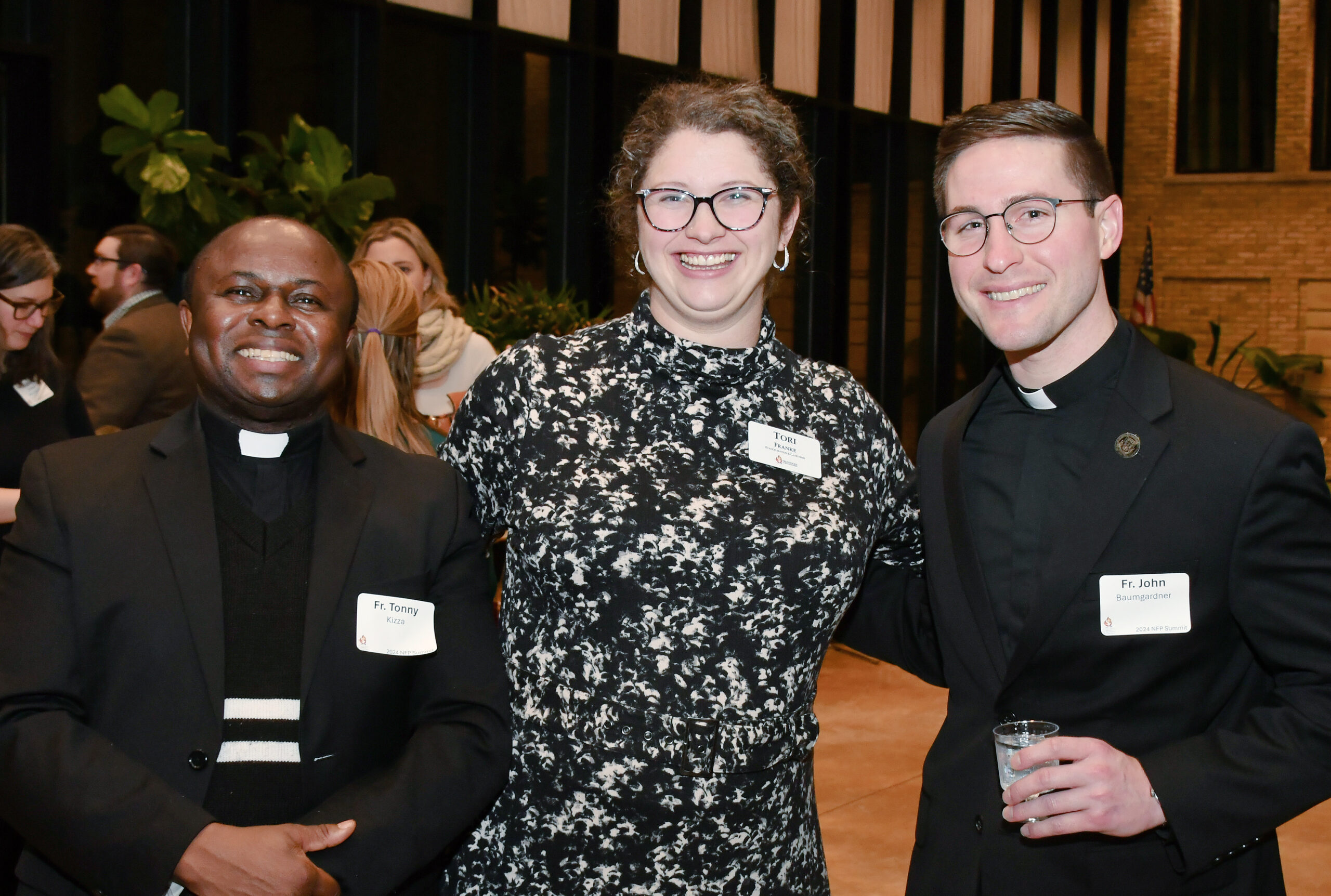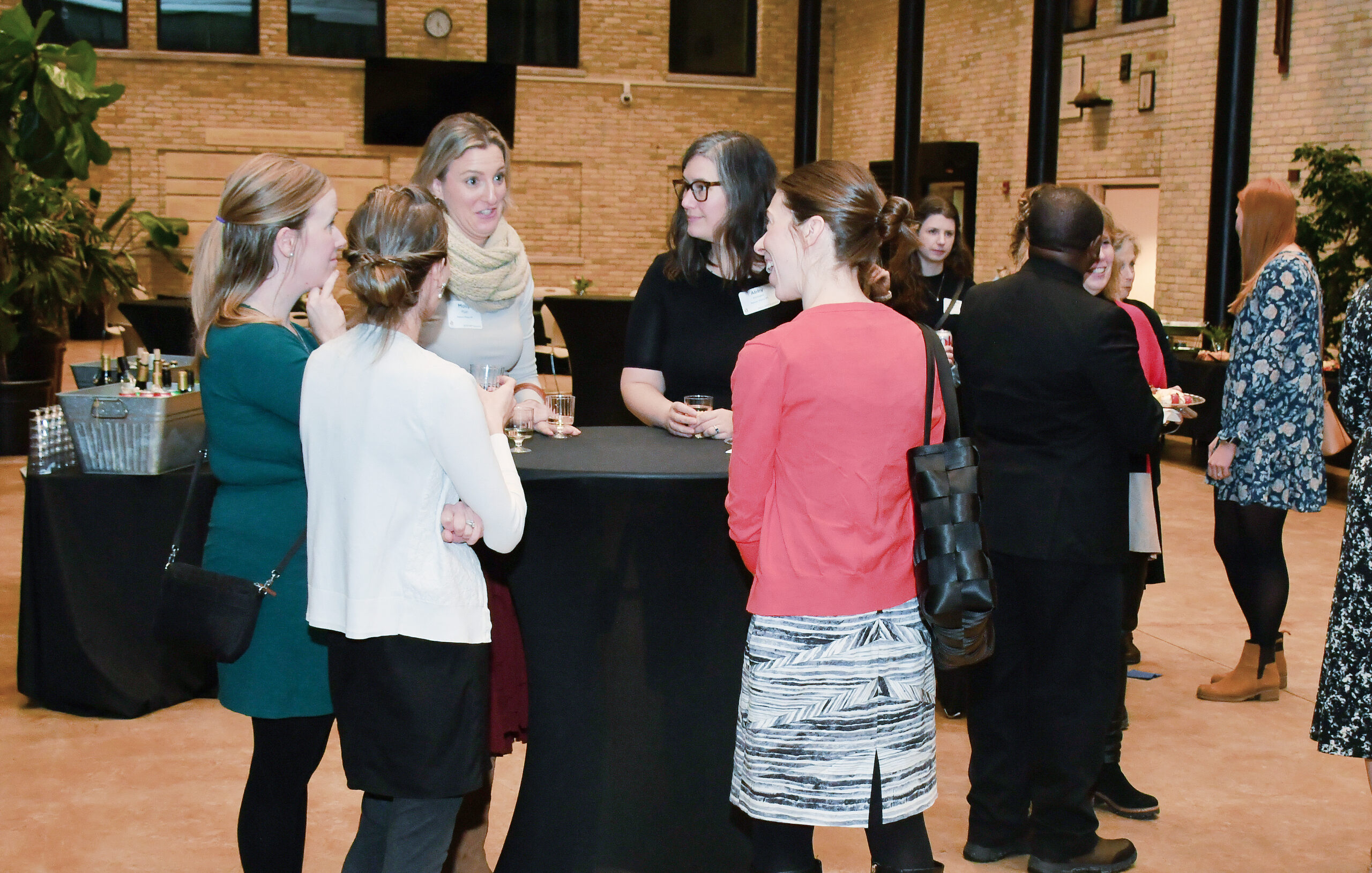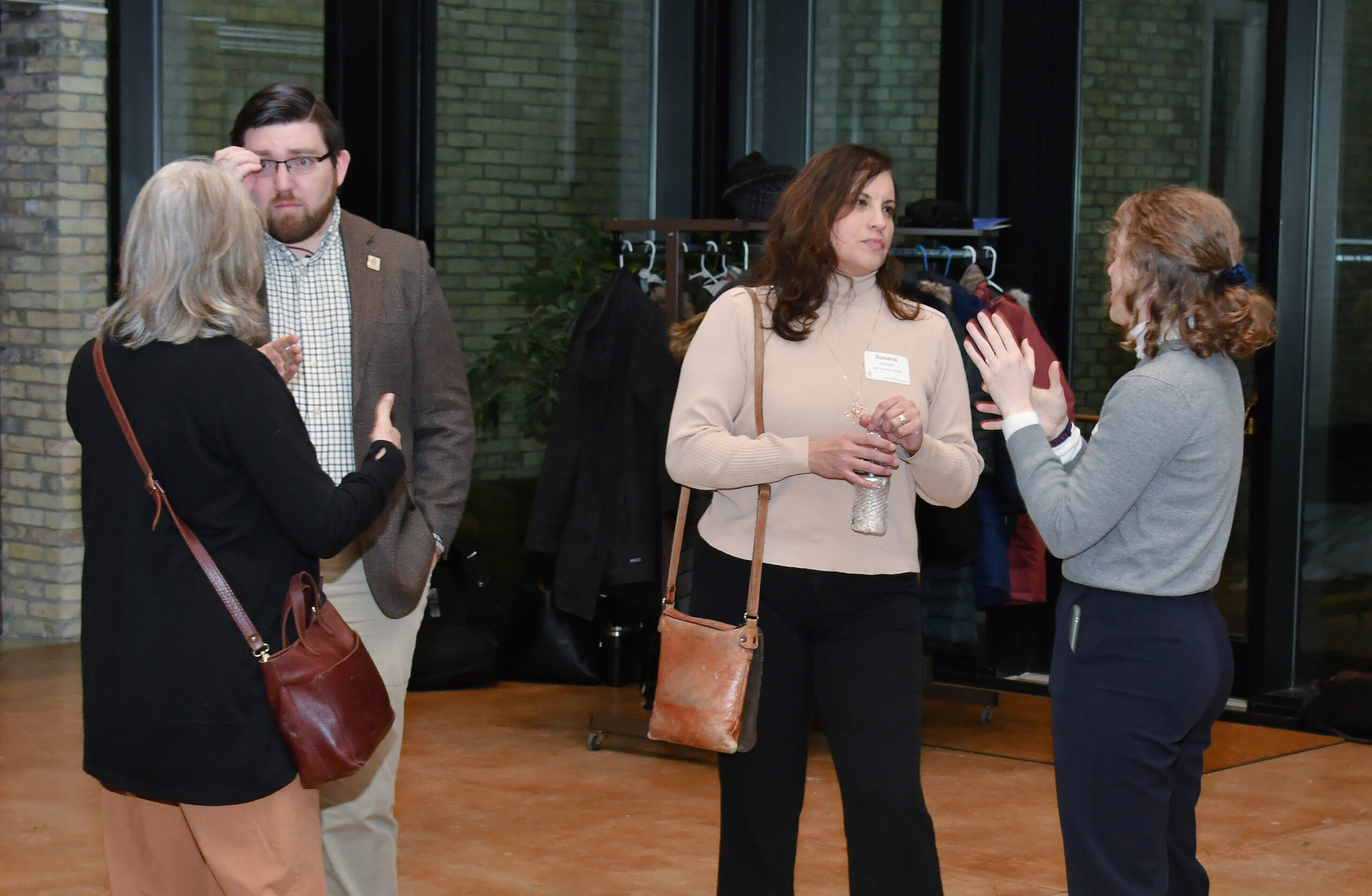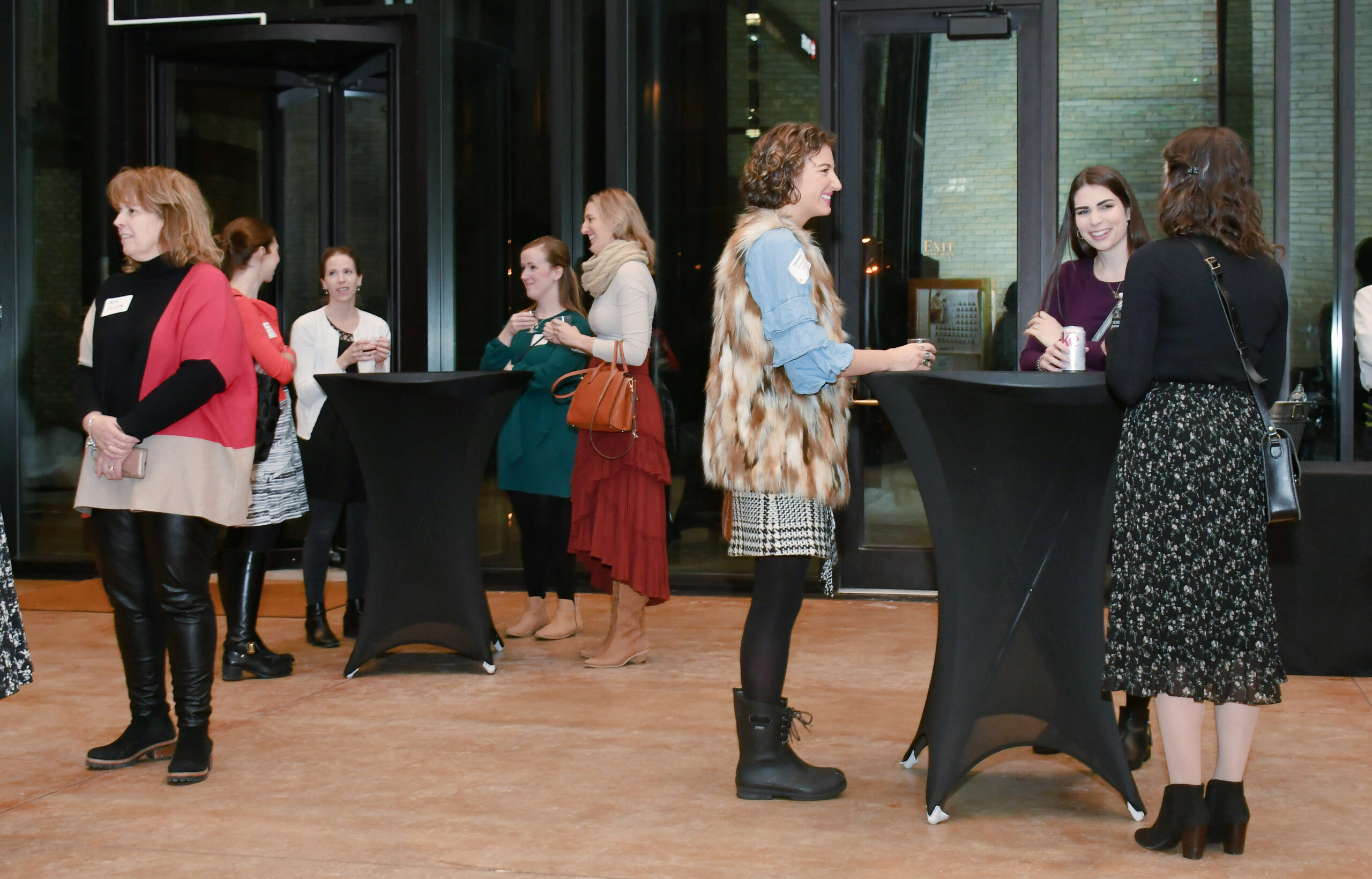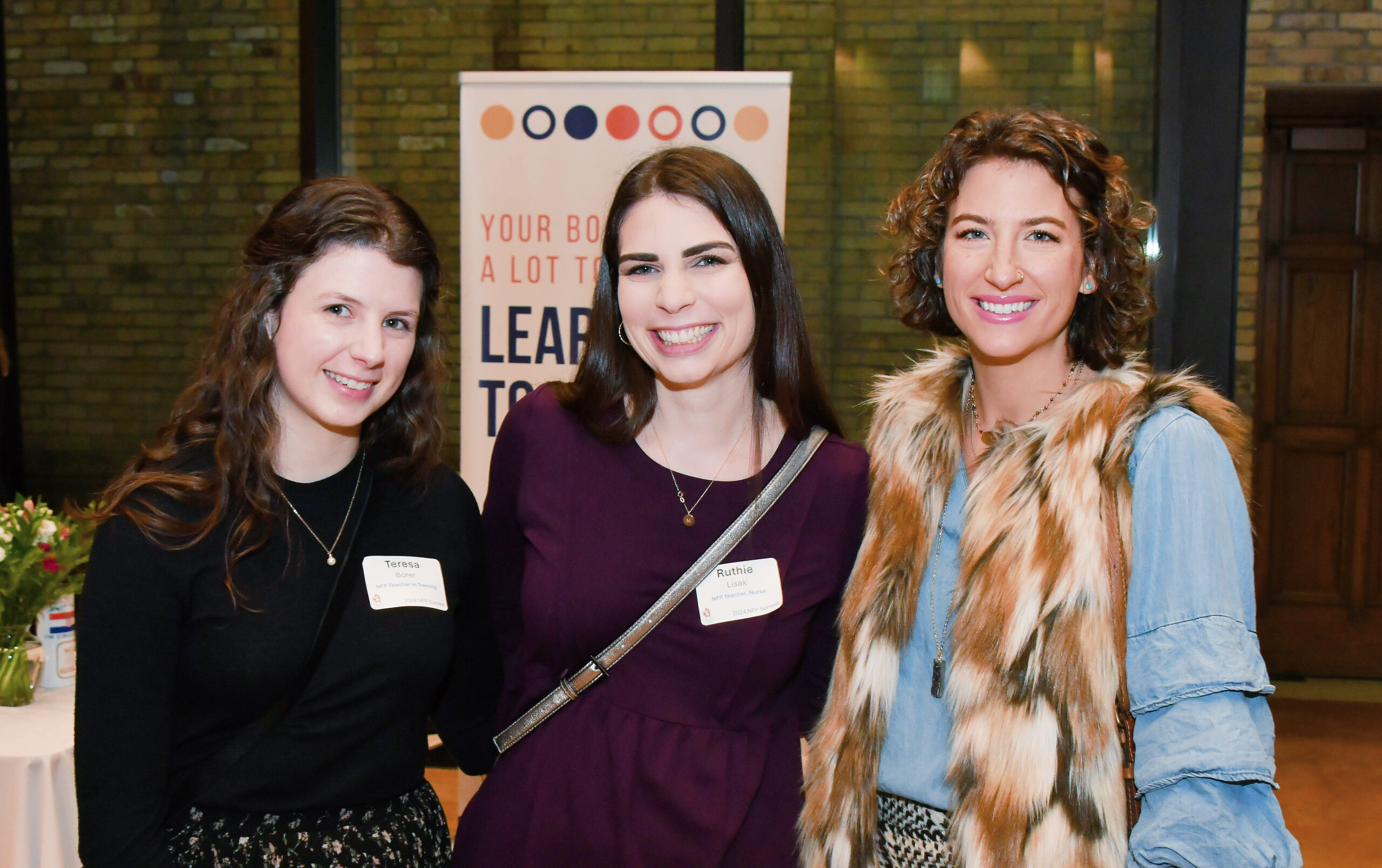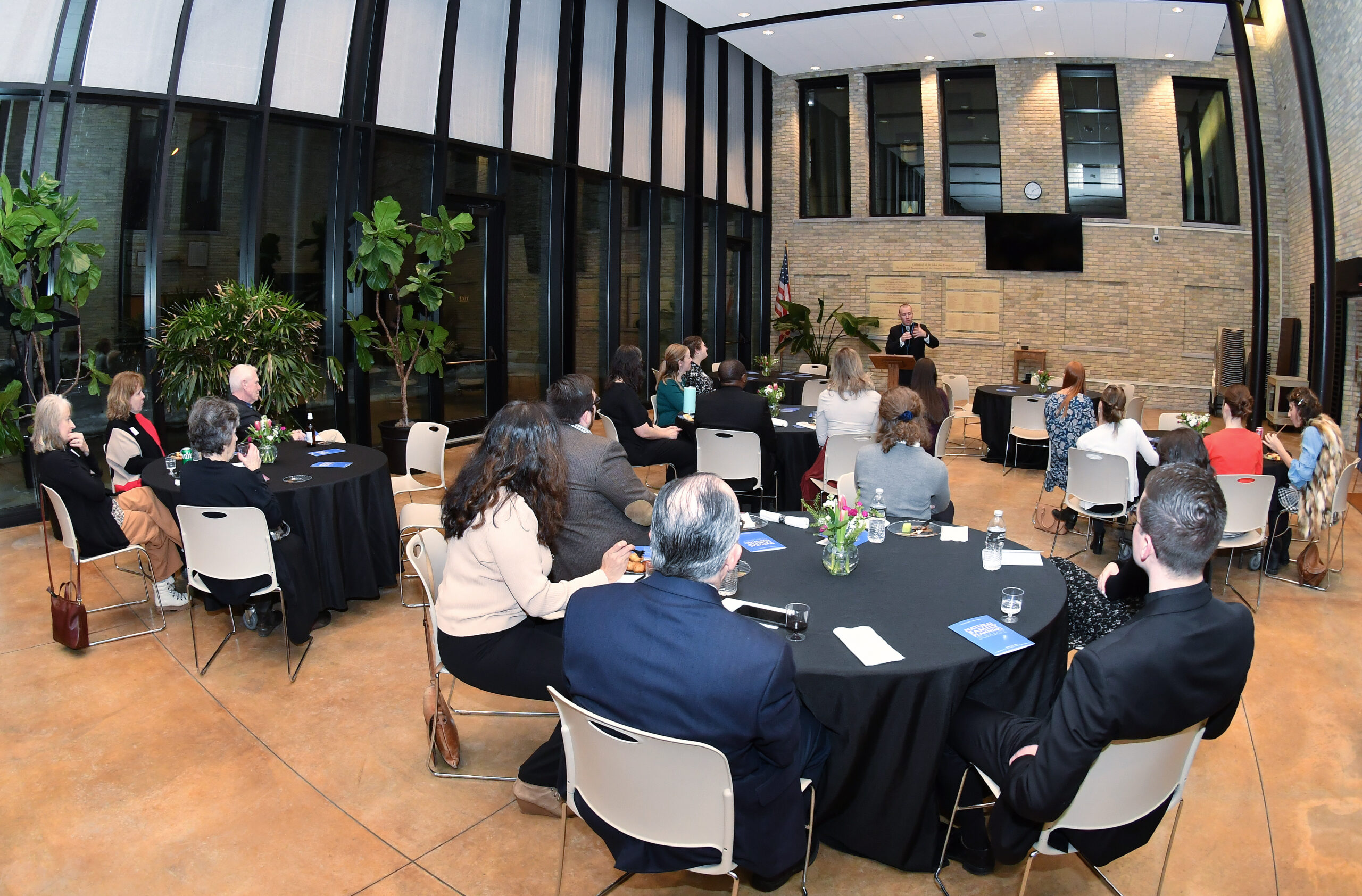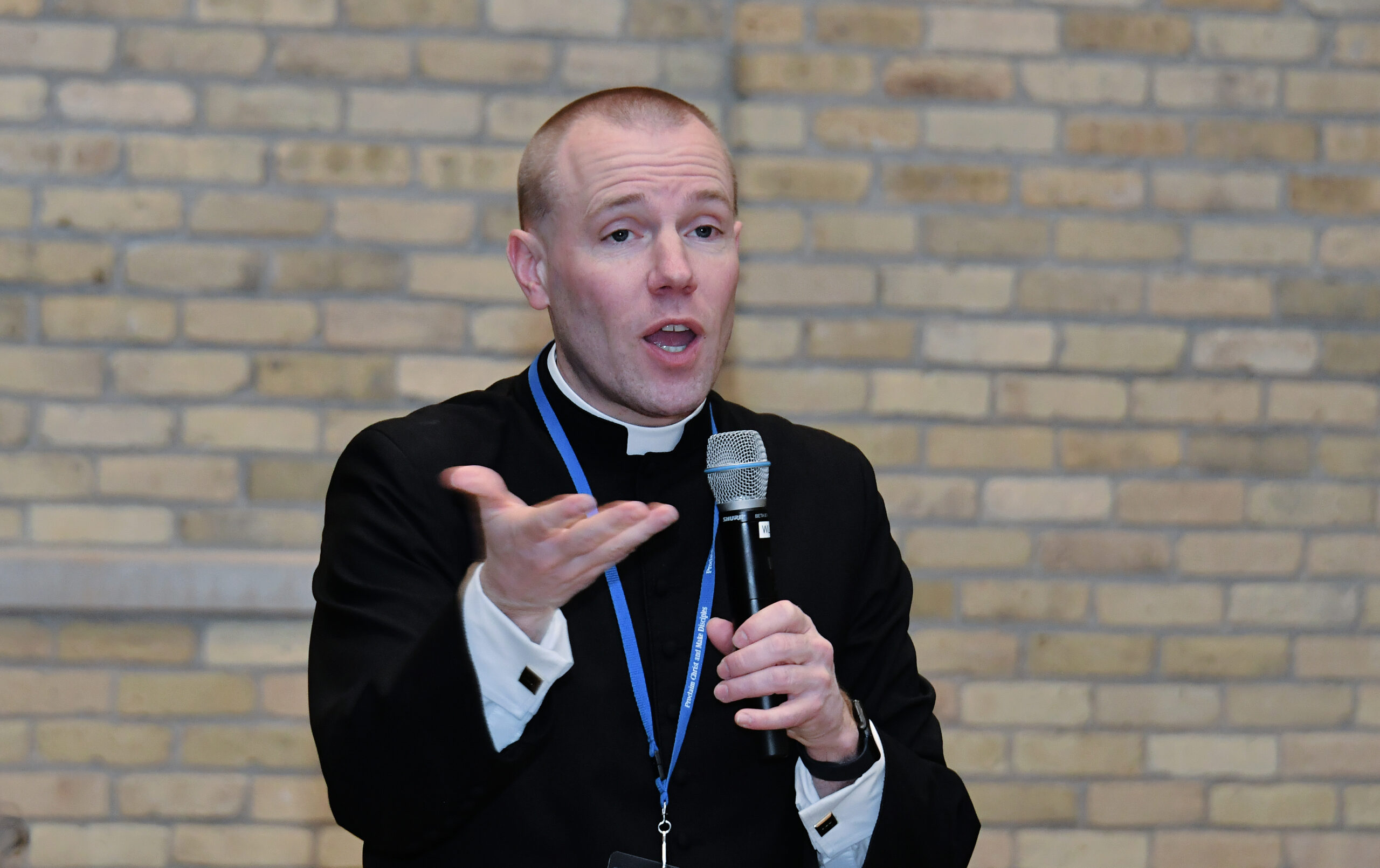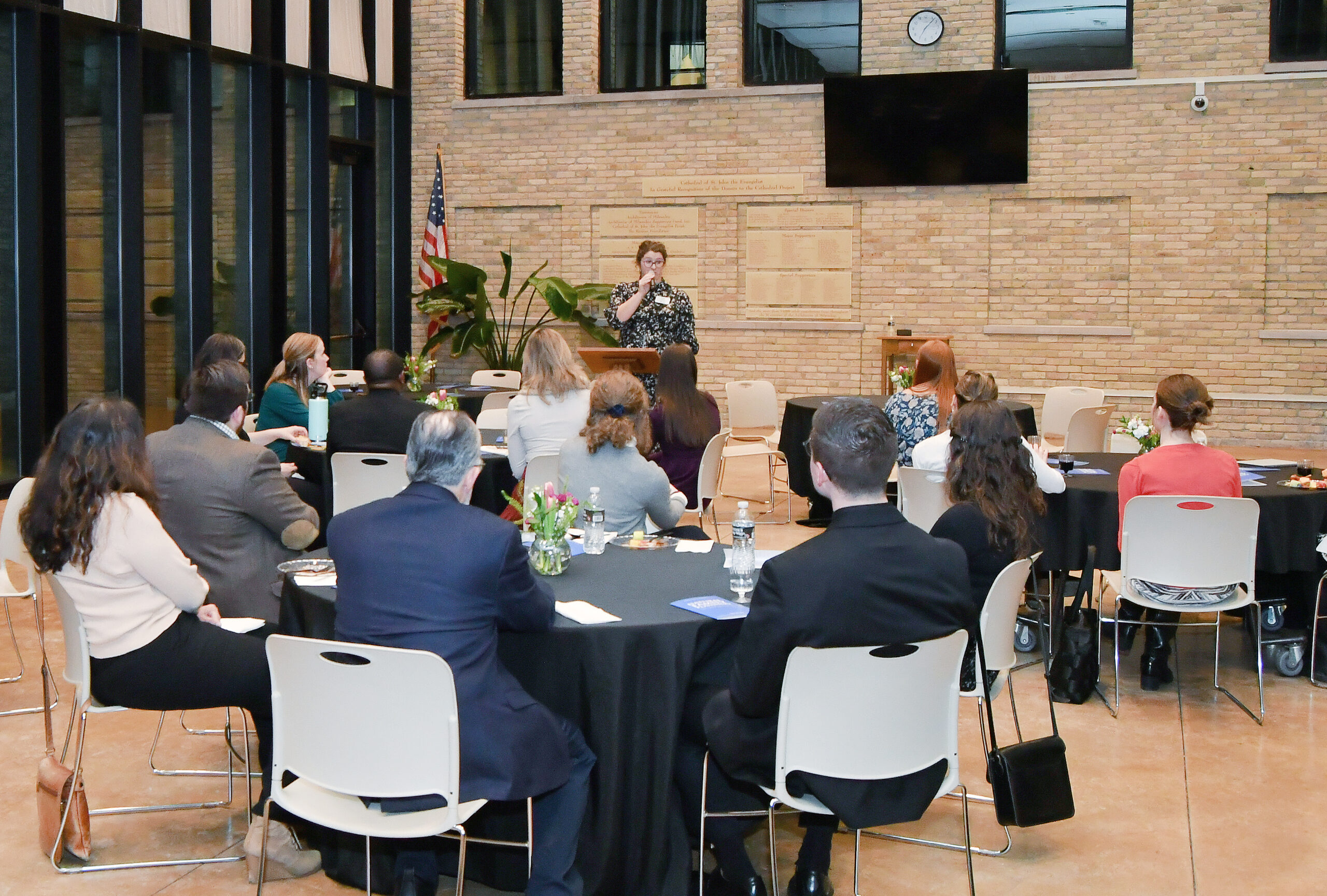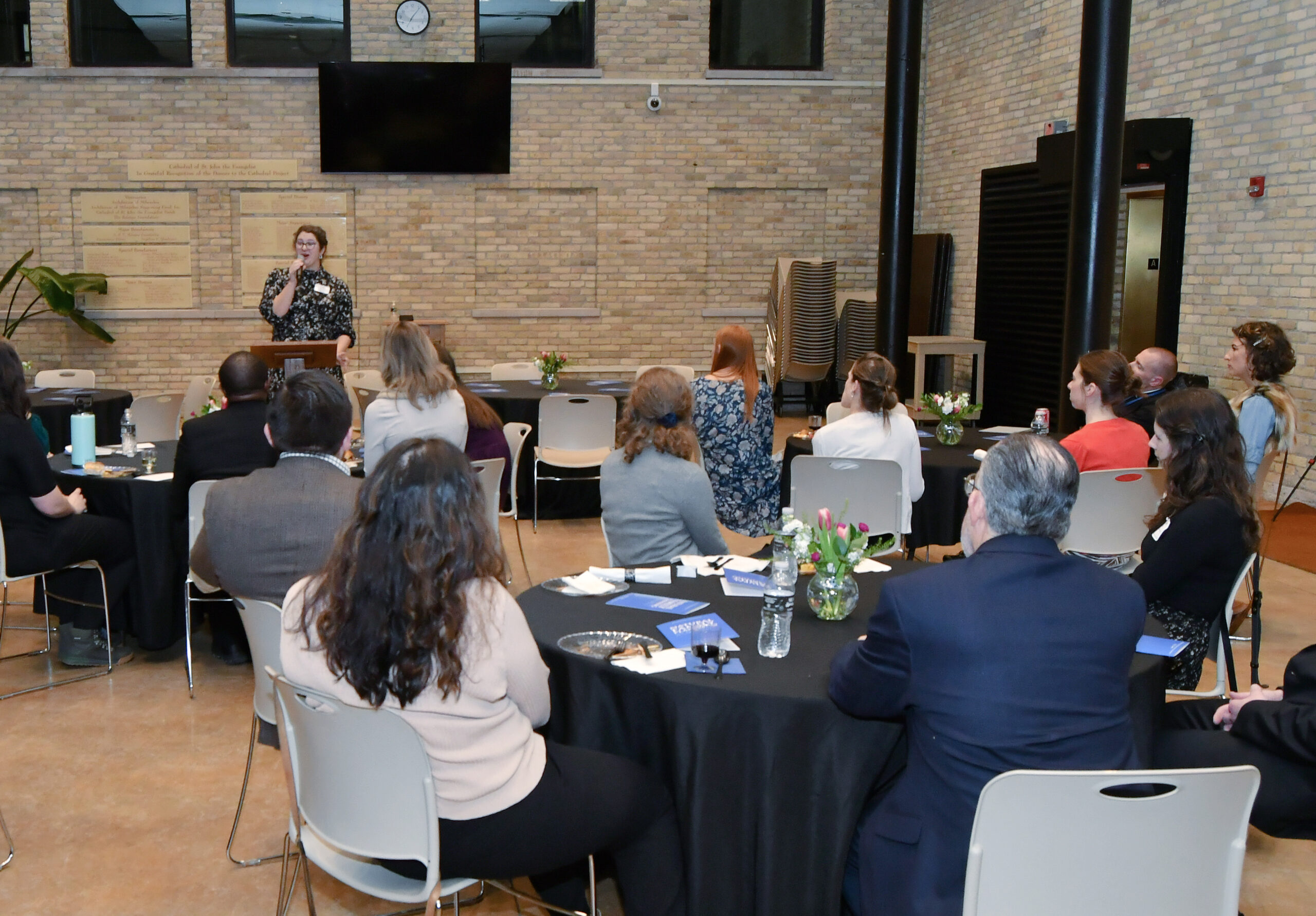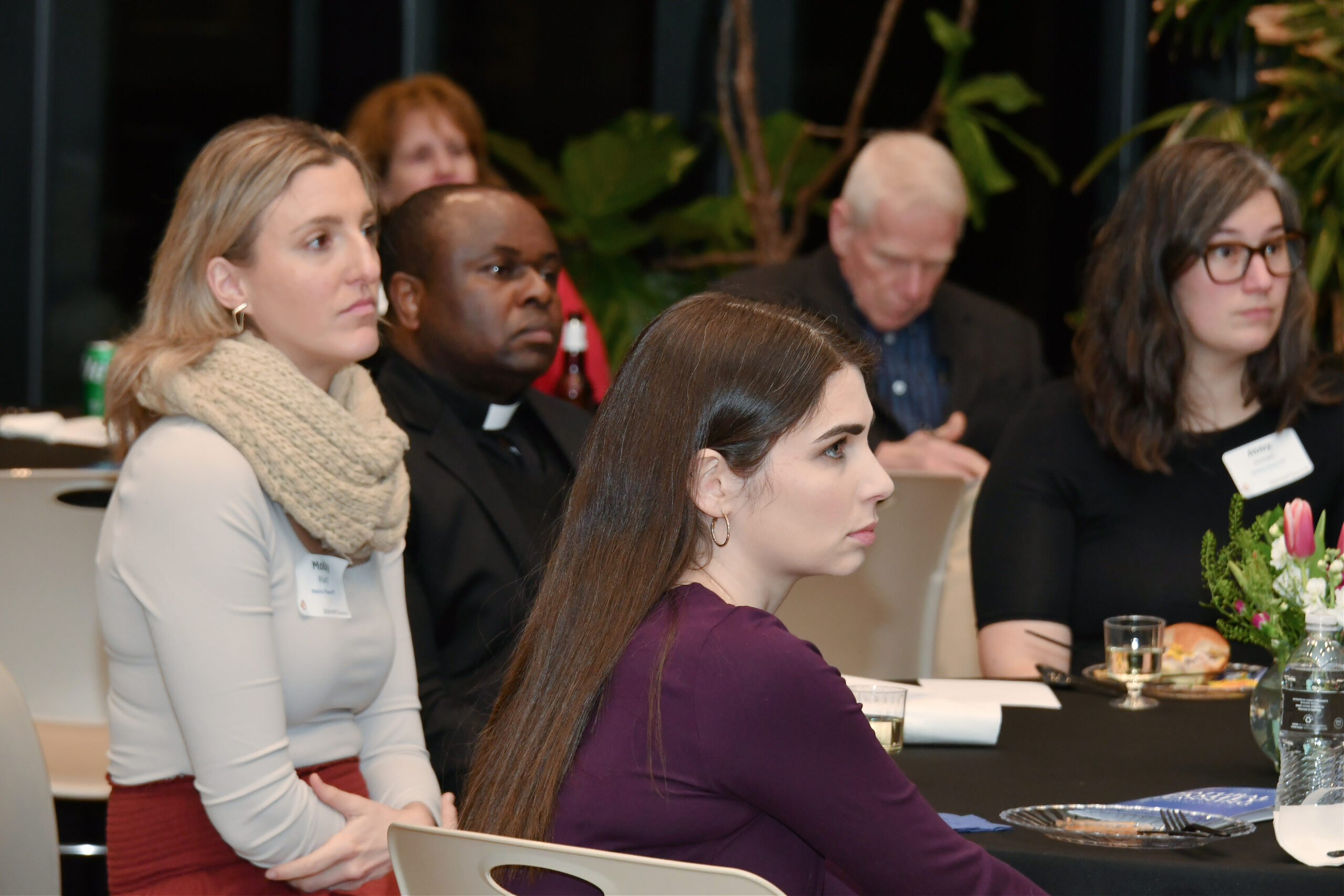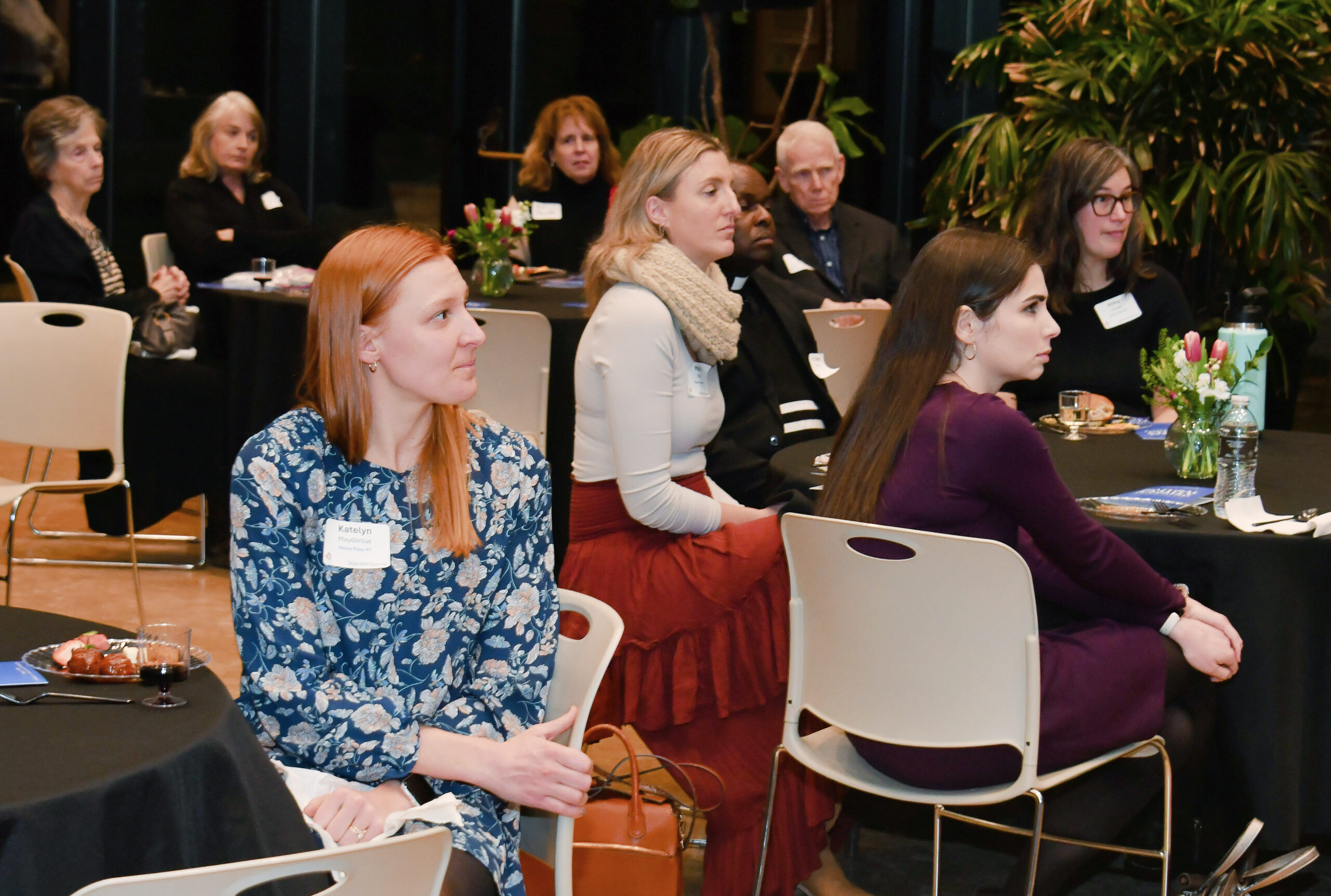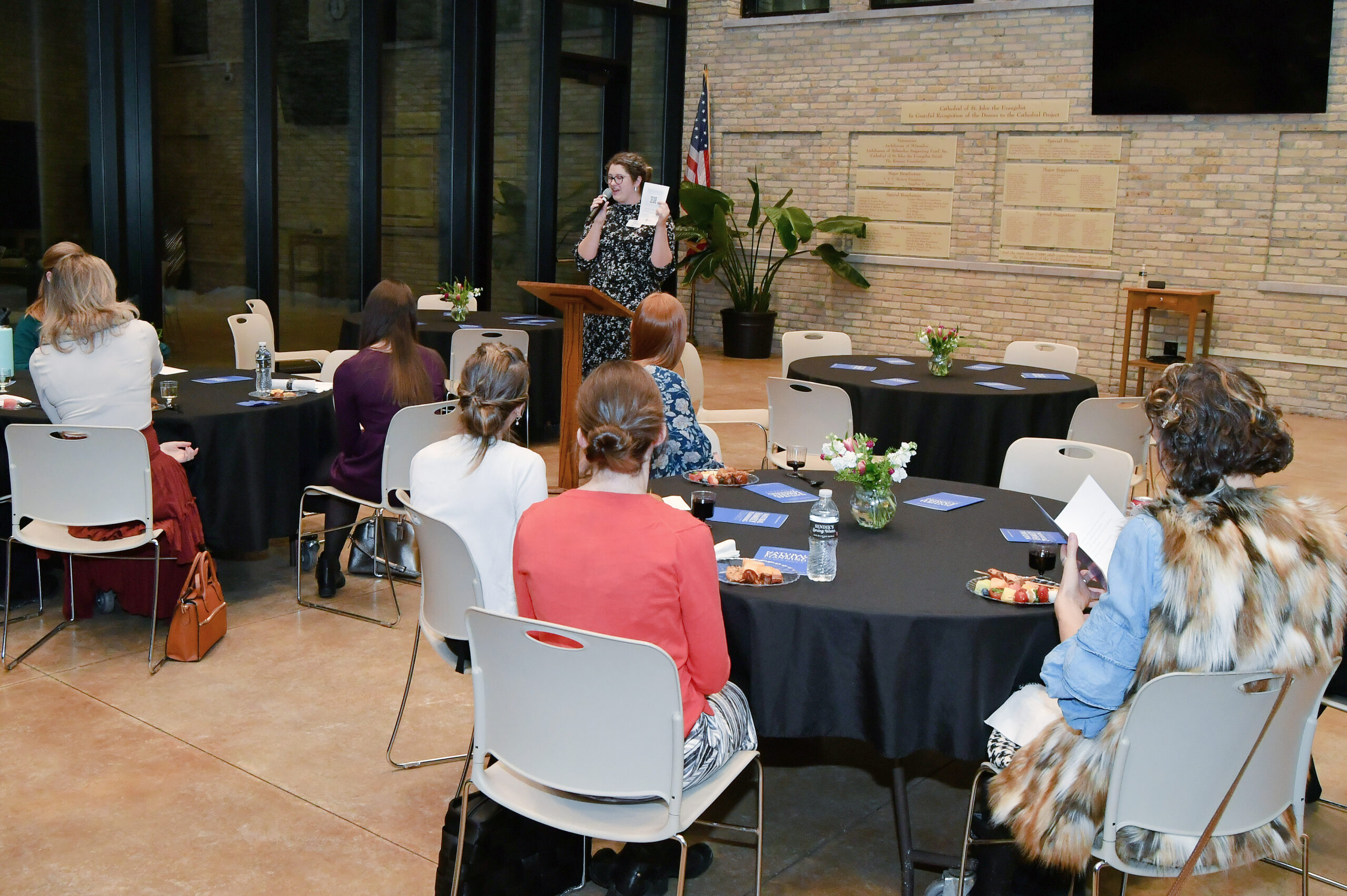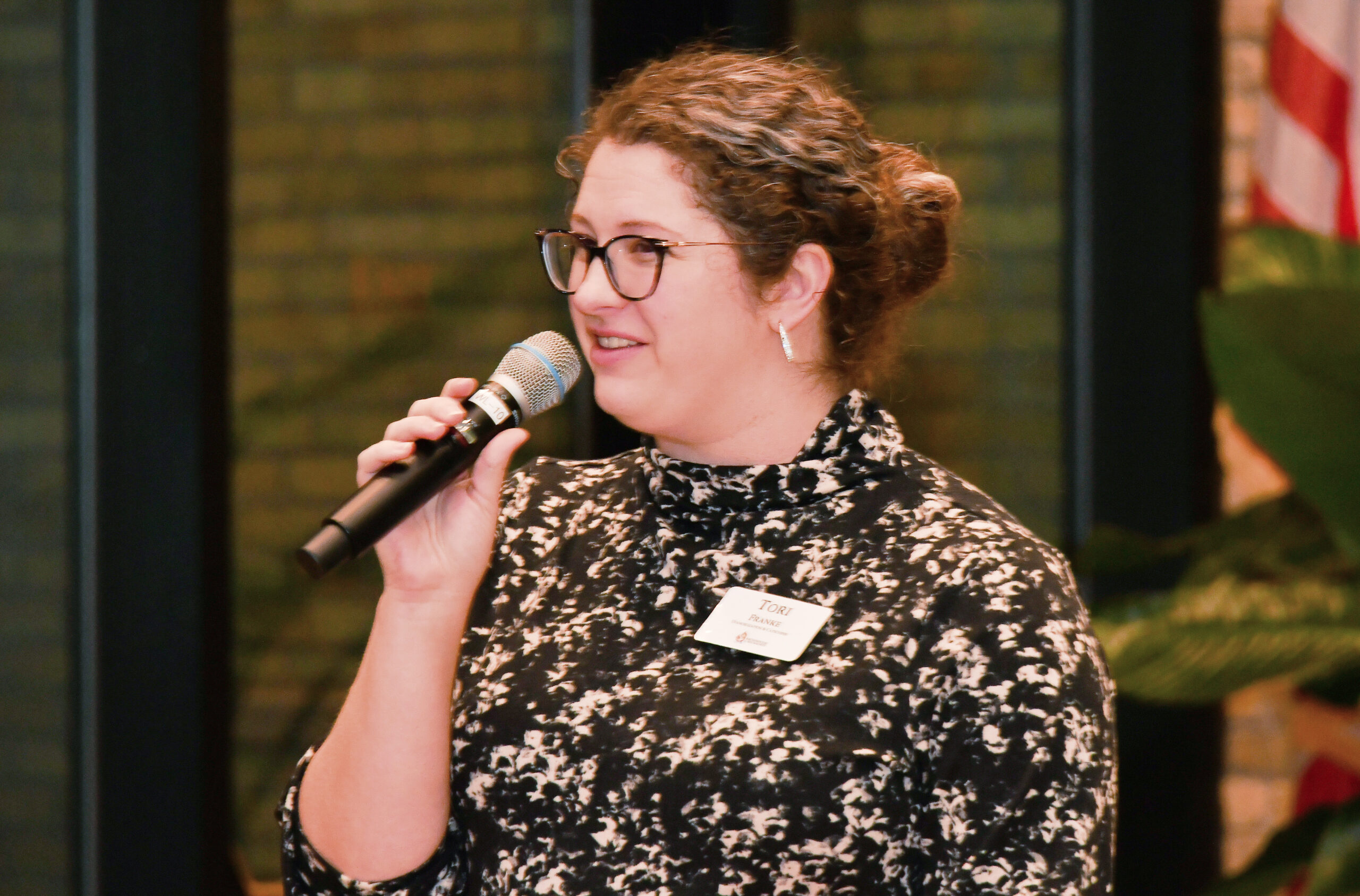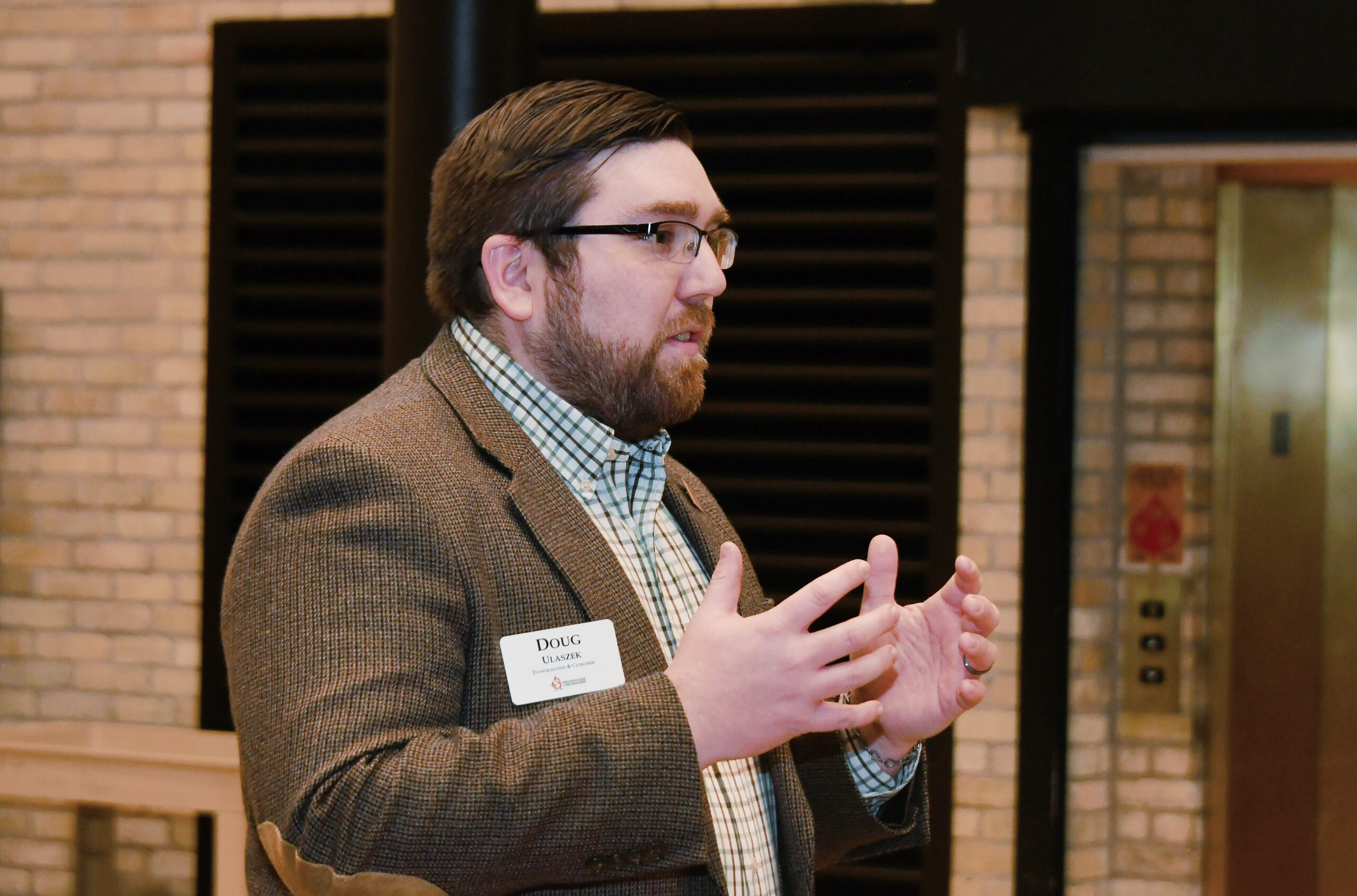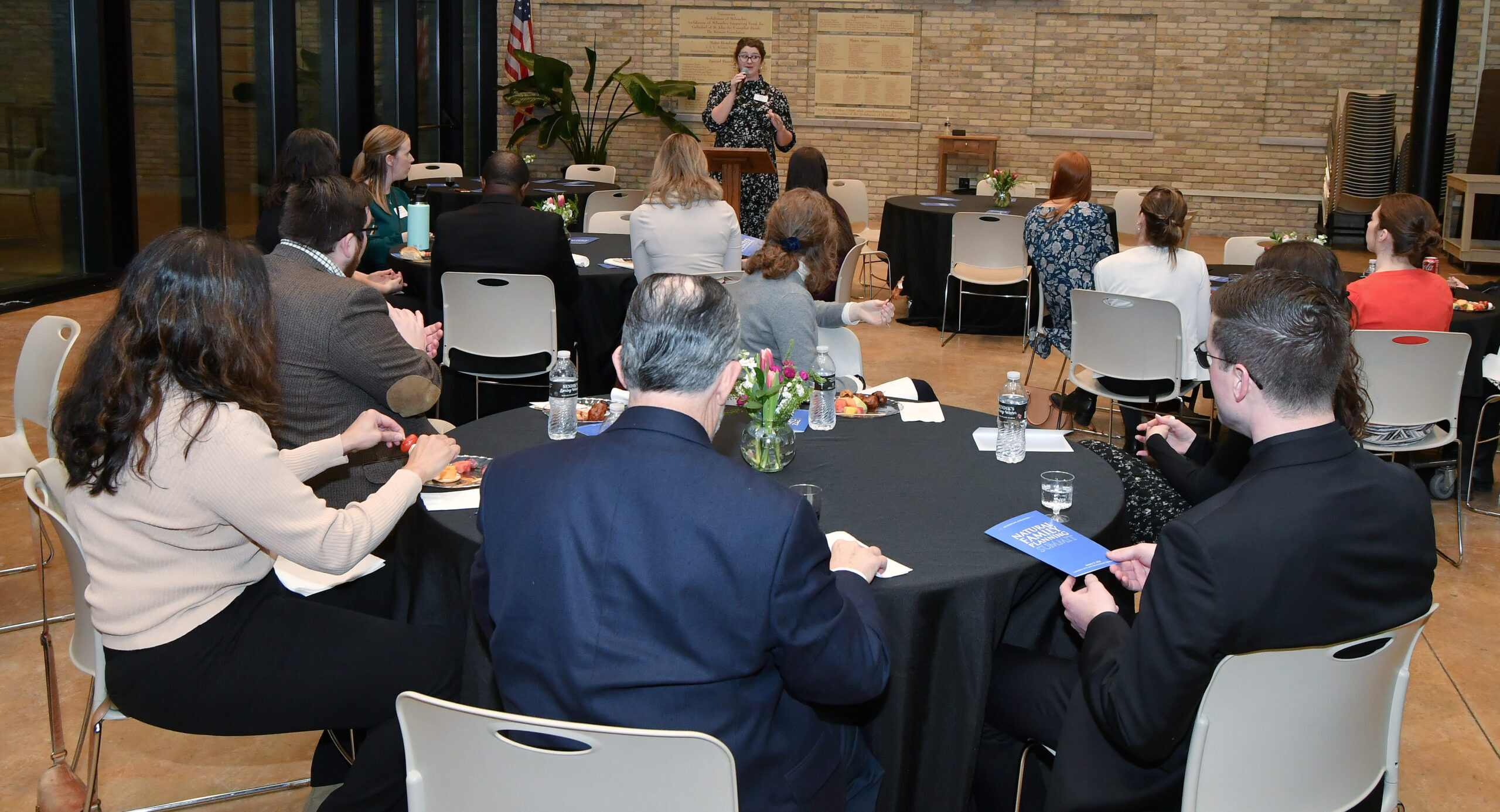
Tori Franke, the Natural Family Planning Coordinator for the Archdiocese Office of Evangelization and Catechesis, speaks during the Natural Family Planning Summit, held Jan. 23 at the Cathedral of St. John the Evangelist, Milwaukee. (Photos by David Bernacchi)
Tori Franke doesn’t think of herself as a networker.
But when it comes to natural family planning, she has come to realize — well, if the shoe fits, wear it with pride.
“I just really love getting to connect people who I genuinely respect and care for with other people I genuinely respect and care for — people that they don’t know yet,” said Franke, Natural Family Planning Coordinator for the Archdiocese of Milwaukee Office of Evangelization and Catechesis.
That’s exactly what the annual NFP Summit is all about: providing a space for those who work in the world of natural family planning to interact with one another, while also taking the opportunity to recognize the importance of their ministry.
This year’s NFP Summit took place Tuesday, Jan. 23, at the Cathedral of St. John the Evangelist. Attendees enjoyed appetizers and drinks in the Cathedral Atrium while socializing and, in many cases, meeting one another in person for the first time.
Natural family planning uses biological signs of fertility to help couples accurately identify what days the woman is fertile or infertile with the help of daily charting.
“Doing this kind of work can feel a bit isolating, especially because it’s not the cultural norm, and especially within the medical world,” said Dr. Melissa Grube, one of the invited guests of the reception. It was her first year attending the summit. “I’ve been wanting to get to know others who are doing it, too — in person. Many of the people that I refer to or get referrals from I’ve never actually met face to face before. This was an awesome chance to really connect the dots.”
Those connected dots can be critical in giving effective patient care, she noted.
“So much of how the (NFP) world works right now is people in silos. It makes it difficult to navigate when you find yourself faced with, in my case, a patient with a need you don’t have an answer for,” Grube said. “I can much more confidently help someone navigate that when I know I have a support network that I can reach out to, ask questions and brainstorm with.”
Katelyn Maydaniuk, a women’s health physical therapist practicing in Wauwatosa, said the summit offered “awesome networking opportunities with other providers who are passionate about helping women better understand their bodies and cycles.”
Many of Maydaniuk’s clients are women who seek holistic care, and in order to provide that, knowledge of their cycle — which is now recognized as a vital sign of health — is imperative.
“It was great sitting at a table with providers from several different health systems and collaborating on these very important topics,” Maydaniuk said. “The highlights for me were being able to connect with other providers who want to fill a gap in our current medical system by providing women with deeper education about their bodies.”
Fr. Nathan Reesman, Vicar for Clergy for the Archdiocese of Milwaukee, spoke at the event, calling NFP “an enduring and important witness to God’s plan for humanity.”
“It’s not easy to live the Gospel. It’s not easy to go against friends and neighbors, the culture,” he said. “I think these days, if you are a husband or a wife who is trying to welcome children, who is trying to practice the regulation of birth the way that the Church and the Gospel asks (us) to, you feel like you are a minority … that your friends and cohorts think that you are some strange anomaly.”
Looking back on his formation as a seminarian and in his early priesthood, he recalled the “odd glances and strange looks” — even sometimes from others in the Catholic Church — that he would sometimes receive when he tried to bring up NFP in certain pastoral settings.
“The prevailing attitude among the enlightened people was (to simply take hormonal birth control) … and it was all the backward people who hung on to an old idea of Church teaching that you’re supposed to somehow not (use contraception),” he said. “And it was only this minority that hung onto the idea that there was something grossly wrong with that mindset, and that the Church teaching really did mean something.”
Fr. Reesman gave thanks for what he observed as an increase in awareness of and appreciation for Church teaching on the regulation of birth. It’s a renaissance taking place both within the pews and on the part of the clergy, he said — and it is due to the long-standing efforts of those who were in attendance at the summit.
“I really think that as the world keeps flirting with these things that are so profoundly opposed to God’s plan for humanity, to do anything that we can to promote what sexuality means, what fertility means, what a gift birth is, what a gift marriage is, and how to, as much as possible, not indulge in the temptation to somehow master our bodily systems with all these mechanized, chemical ideas — this is a huge witness to the future of humanity, to a world that’s rapidly losing sight of it,” Fr. Reesman said.
Attendees were also treated to an update from Franke on several initiatives of her office, which seeks to be a clearinghouse of NFP resources for families, couples and individuals throughout the entire Archdiocese of Milwaukee.
The last year has seen a significant increase in one-on-one consultations with women and couples interested in learning more about NFP, said Franke. She answers general questions women have about the basics of fertility awareness and charting, helps them to assess which method of NFP might best fit their needs and connects them with method instructors.
Franke also discussed some of the big plans that the Office of Evangelization and Catechesis has for NFP ministry over the next year, including the piloting of a program called “Cycle Prep” for adolescent girls and their parents, which will be offered in an extracurricular capacity at St. Frances Cabrini School, West Bend.
“The most common comment that I get, and I know a lot of teachers know this as well, is why didn’t I know this sooner?” said Franke, referring to fertility awareness and charting. “At an age-appropriate level, there’s just so much basic biology that we could know sooner. I really desire to help support our parents and support our schools in providing that so that it’s not such a shock to the system when we learn about this as adult men and women.”
The office also has plans for the expansion of services catering to women in the perimenopause stage of fertility, and for increased formation for parish staff on ministry to couples experiencing miscarriage and infertility.
“Seeing the passion of Tori and many medical professionals at the summit was encouraging and inspiring,” said Maydaniuk. “Medical professionals are often ignorant about cycle charting due to lack of education provided in their schooling, but as more and more professionals understand the depth and beauty of a women’s cycle, I believe it will become more widely taught and used.”
Those interested in learning more about natural family planning can visit www.archmil.org/naturalfertilitycare or reach out to Tori Franke at franket@archmil.org or 414-758-2241.

